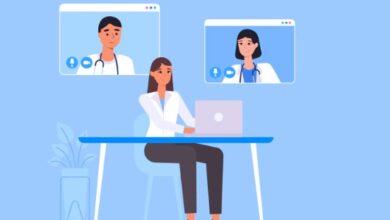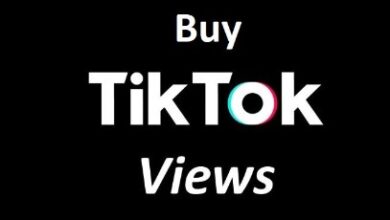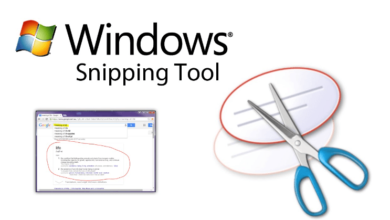App Development for Healthcare Industry

Introduction to App Development for Healthcare Industry
Many healthcare organizations are looking to develop mobile apps to improve patient care and engagement. But what does it take to develop a successful healthcare app?
In this section, we’ll give an overview of the process of developing a healthcare app, from planning to launch. We’ll also touch on some of the unique challenges that come with developing apps for the healthcare industry.
Benefits of Developing Apps for Healthcare
There are many benefits of depending on an App development company to create apps for healthcare. One benefit is that apps can help patients manage their health conditions and track their progress over time. Apps can also provide educational resources for patients and their caregivers. Additionally, apps can help to connect patients with doctors and other healthcare providers. Another benefit of app development in healthcare is that it can help to improve patient outcomes. Studies have shown that patients who use health-related apps tend to have better outcomes than those who do not use them. Finally, app development in healthcare can help to reduce healthcare costs. One study found that patients who used a health app saved an average of $837 per year on medical costs.
Challenges Faced in App Development in the Healthcare Sector
There are a number of challenges faced when developing apps for the healthcare sector. One of the biggest challenges is ensuring that the app is secure and compliant with all relevant regulations. This includes HIPAA in the US and GDPR in Europe. Another challenge is developing an app that is usable by both medical professionals and patients. This requires a deep understanding of both groups’ needs and how they use mobile technology. Additionally, developing an app that integrates with existing healthcare systems can be difficult and time-consuming. Finally, making an app affordable for both patients and healthcare providers can be a challenge.
Types of Healthcare Apps
There are many different types of healthcare apps available on the market today. Here are some of the most popular types:
- Fitness and exercise apps: These apps can help you track your fitness progress, set goals, and find new workout routines.
- Health tracking apps: These apps can help you track your weight, blood pressure, and other health metrics over time.
- Medication reminder apps: These apps can remind you to take your medications and keep track of when you last took them.
- Appointment reminder apps: These apps can remind you of upcoming doctor’s appointments or other important dates.
- Symptom checker apps: These apps can help you identify possible causes of symptoms you’re experiencing and find information on possible treatments.
Key Features of a Successful App for Healthcare
There are many factors that contribute to the success of an app development project in the healthcare industry. However, some key features are essential for any healthcare app that wants to be successful.
First and foremost, a healthcare app must be able to securely store and manage patient data. This data must be accessible to authorized users only, and it must be protected from unauthorized access. In addition, the app must be able to integrate with existing healthcare systems and databases.
Another important feature of a successful healthcare app is its ability to support mobile devices. Healthcare providers are increasingly using mobile devices to access patient data and other information. Therefore, an app must be designed to work well on these devices.
Finally, a successful healthcare app must be easy to use. It should have a user-friendly interface that is easy to navigate. Additionally, it should offer features that are relevant and useful to healthcare providers.
Popular Technologies Used for App Development
There are many popular technologies used for healthcare app development. Some of the most popular include:
- Health Kit: This is a framework that enables developers to create apps that can store and share health data. It is often used for fitness and wellness apps.
- Care Kit: This is a framework that helps developers build apps that allow users to manage their own care. It includes tools for tracking symptoms, medications, and more.
- Core Data: This is a powerful tool that helps developers store and manage data in healthcare apps. It is often used for patient records and other sensitive data.
- SQLite: This is a database management system that is commonly used in healthcare apps. It helps developer’s store and query data efficiently.
Tips for Developing an Effective Mobile App for Healthcare
There is no one-size-fits-all answer to developing an effective mobile app for healthcare. However, there are some key tips that can help you create a successful app.
1. Define your audience and purpose.
Who will you be targeting with your app? What needs will it address? Answering these questions will help you create an app that is tailored to your specific audience.
2. Keep it simple.
Your app should be easy to use and understand. Overcomplicating things will only make it more difficult for users, which could lead to them abandoning the app altogether.
3. Make use of data.
Data can be incredibly helpful in understanding how users interact with your app. Use analytics to track things like usage patterns and user engagement. This information can then be used to improve the app over time.
4. Prioritize security and privacy.
With sensitive user data comes the need for increased security measures. Be sure to put the necessary safeguards in place to protect user data from potential breaches. Additionally, consider how you will handle user data when it comes to privacy concerns.
5 Test, test, test!
Before releasing your app to the masses, put it through its paces with beta testers. This will help you identify any bugs or areas that need improvement before making it available to everyone.”
Conclusion
App development for the healthcare industry has come a long way in recent years, and it is clear that there are many benefits to embracing this technology. Not only can apps provide cost-effective solutions to streamline operations and improve patient care, but they can also provide an efficient platform to communicate with patients. Healthcare organizations should make use of app development as part of their digital transformation process in order to stay competitive and remain at the forefront of innovation.




